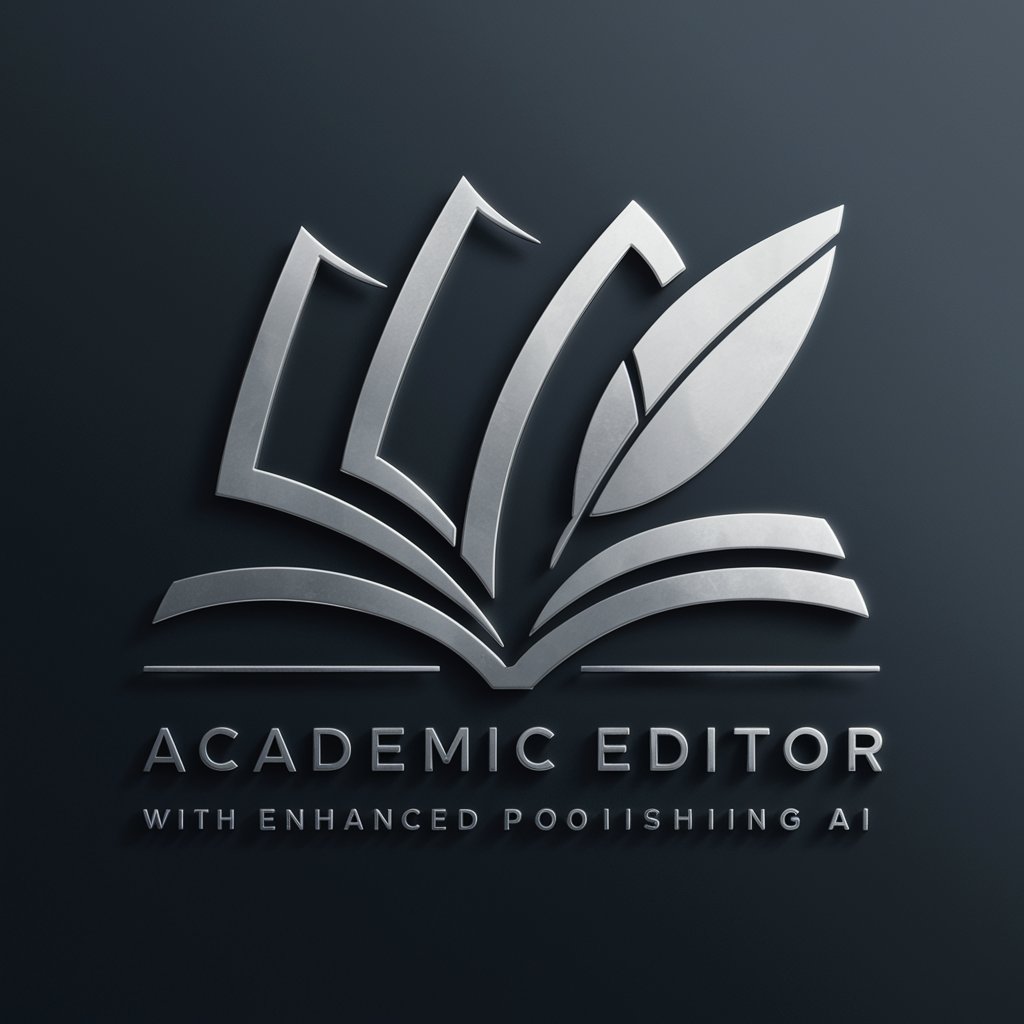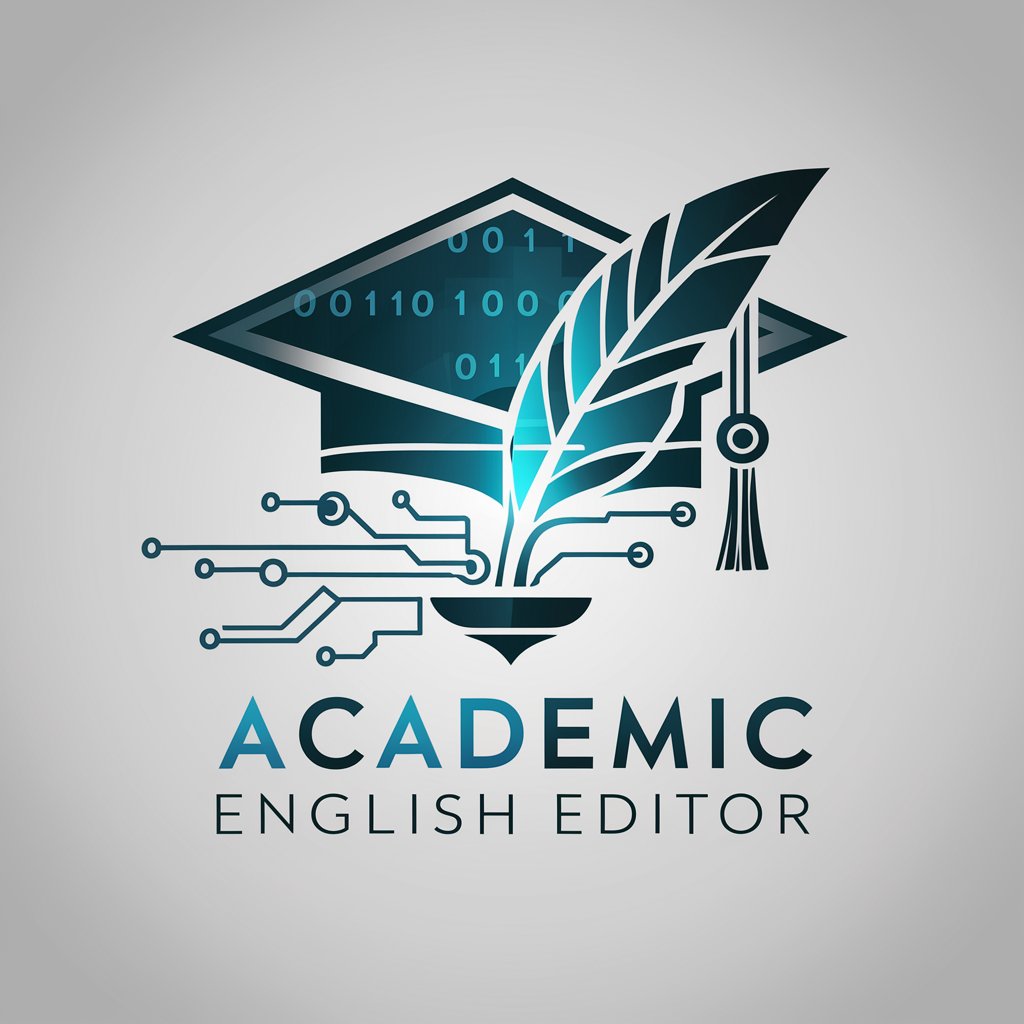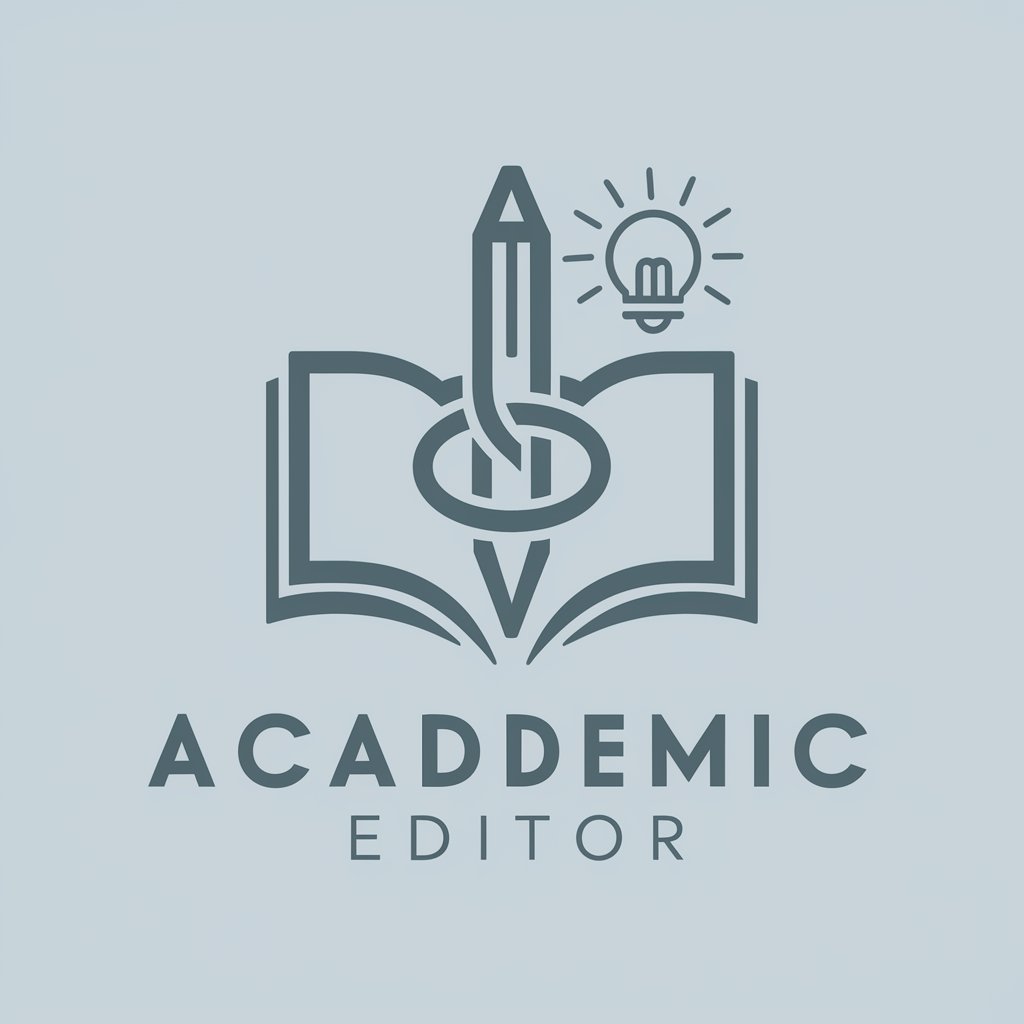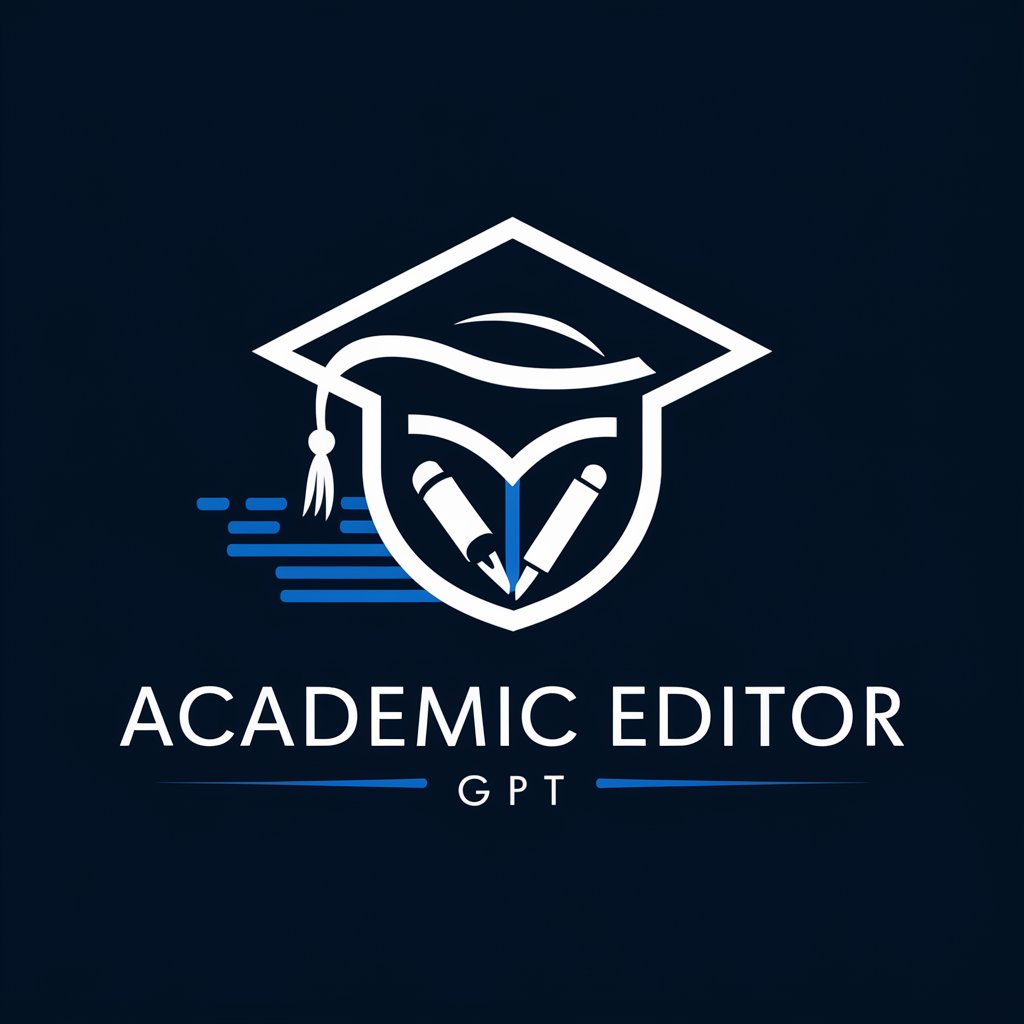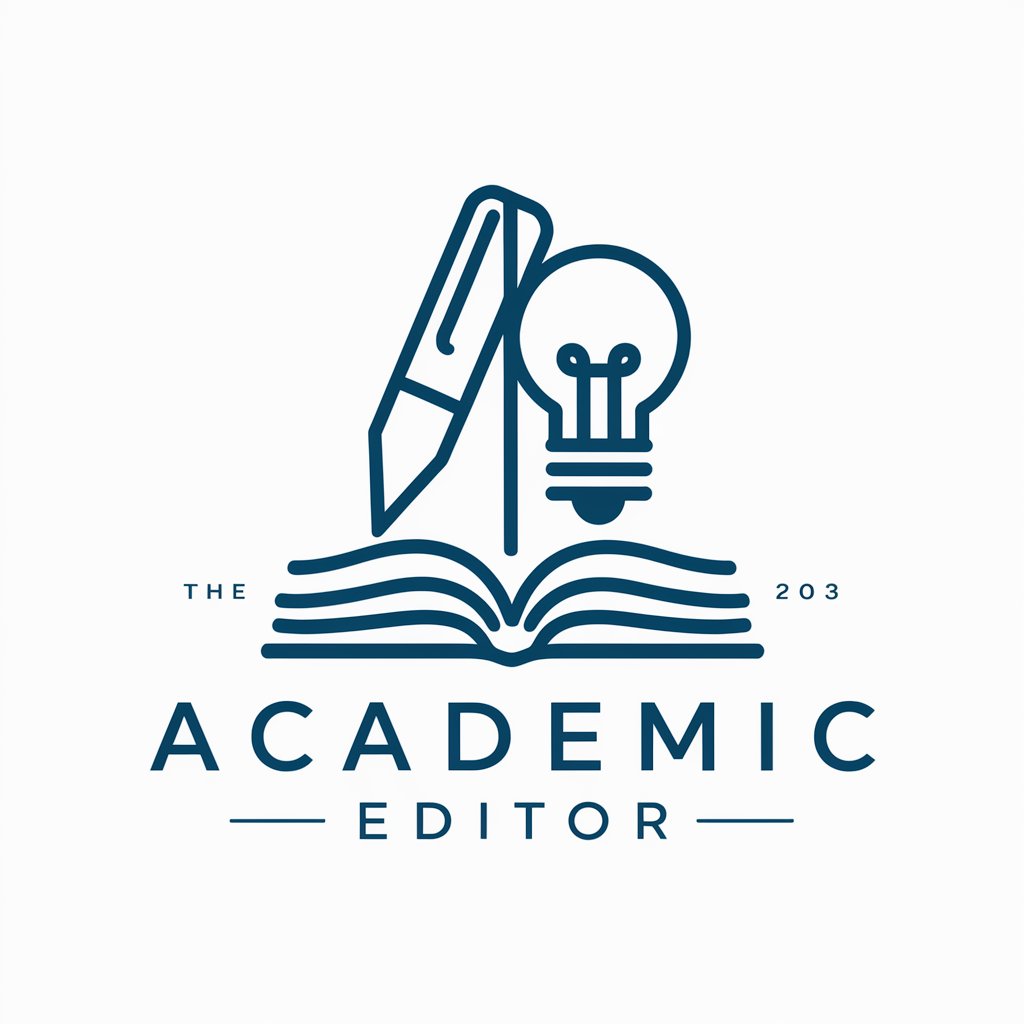
Academic Editor - Academic English Enhancement
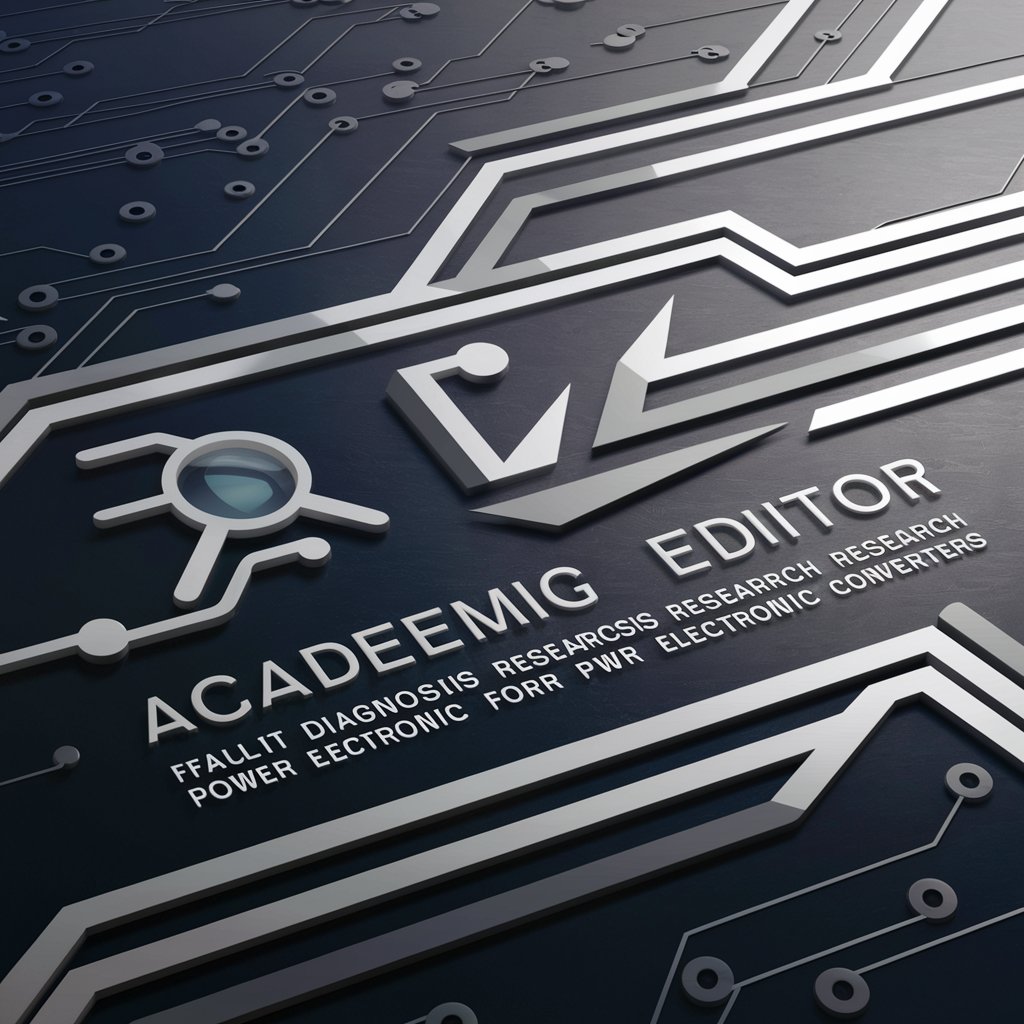
Welcome to your academic editing assistant.
Elevate Your Academic Work with AI
Enhance the clarity of this technical research abstract:
Polish this academic paper's introduction for readability and conciseness:
Revise this methodology section to meet IEEE publication standards:
Improve the grammar and flow of this conclusion section:
Get Embed Code
Overview of Academic Editor
Academic Editor is designed to enhance the quality of academic manuscripts to meet the stringent standards of scholarly publication. It functions as an advanced proofreading and editing tool, focusing on improving the spelling, grammar, clarity, concision, and overall readability of texts. The tool is particularly adept at refining complex academic language, ensuring that the manuscripts are not only error-free but also polished to reflect a high level of academic excellence. An example of its application includes revising a draft manuscript for a journal submission. Here, Academic Editor would meticulously review the text, identifying and correcting grammatical errors, refining the language for clarity, and suggesting structural improvements to enhance the flow and coherence of arguments. Powered by ChatGPT-4o。

Core Functions of Academic Editor
Spelling and Grammar Correction
Example
Correcting 'teh' to 'the' and 'independant' to 'independent'.
Scenario
While reviewing a manuscript on renewable energy sources, Academic Editor detects and corrects typographical errors and common spelling mistakes, thereby preventing potentially embarrassing mistakes from undermining the credibility of the research.
Enhancing Clarity and Concision
Example
Revising 'The results that were obtained from the experiment were indicative of...' to 'The experiment's results indicated...'.
Scenario
In a dense, technical section of a paper on fault diagnosis in power electronic converters, Academic Editor rephrases sentences to be more direct and easier to understand, thus improving the accessibility of the text to a broader audience.
Structural Improvement
Example
Suggesting the reorganization of sections for better logical flow.
Scenario
For a thesis on the impact of climate change on energy systems, Academic Editor recommends reordering the chapters to ensure that the argument builds logically from the introduction of key concepts to the presentation of the researcher's findings.
Target User Groups for Academic Editor
Researchers and Academics
Individuals engaged in the preparation of articles, papers, and reports for publication in scholarly journals, particularly in fields that require adherence to specific stylistic and formatting guidelines. They benefit from Academic Editor's ability to refine complex academic language and ensure compliance with publication standards.
Graduate and Postgraduate Students
Students working on theses, dissertations, and other academic assignments that demand a high level of written proficiency. Academic Editor assists them in polishing their work to meet the academic rigor expected by thesis committees and academic advisors.

How to Use Academic Editor
Start with a Free Trial
Access Academic Editor without needing to sign up or subscribe to ChatGPT Plus by visiting yeschat.ai.
Prepare Your Document
Ensure your document is ready for review. This includes any academic papers, articles, or reports you wish to improve.
Select Your Task
Choose the specific service you need, such as spelling correction, grammar improvement, or overall readability enhancement.
Submit Your Text
Paste your text into the Academic Editor interface. For best results, clearly mark sections or highlight areas where you seek specific improvements.
Review and Apply Changes
Once Academic Editor provides suggestions, review them carefully and apply the changes to your document as needed.
Try other advanced and practical GPTs
Editor
Enhance your writing with AI-powered precision.
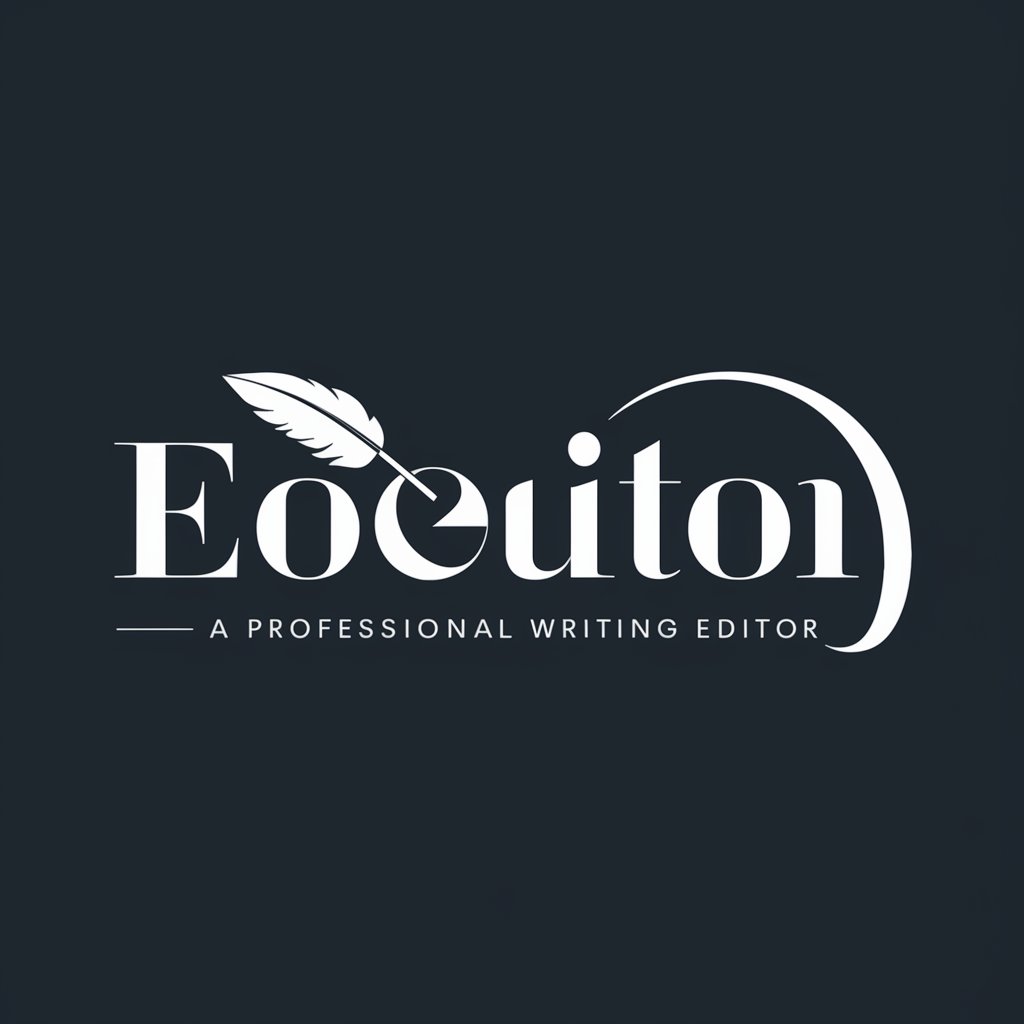
Scholarly Editor
Elevating Academic Texts with AI

Editor Pro
Enhance Your Writing with AI-Powered Precision

Elegant Editor
Elevate Your Writing with AI

Editor Ella
Revitalize Your Text with AI-Powered Precision

ファイナンシャル・プランナー
AI-Powered Financial Guidance

Eloquent Editor
Enhance your writing with AI-powered precision.

Fluent Editor
Elevate Your Text with AI Precision

TechPolish Editor
Empower Your Words with AI-Powered Precision

Literary Editor
Empower Your Writing with AI

海外イケメンハンター
Discover Global Handsomeness, Powered by AI

Cat-Ear Man Maker(猫耳イケメンメーカー/二次元猫耳美男生成)
Create, customize, and conceptualize cat-eared men!

Academic Editor Q&A
What types of documents can Academic Editor improve?
Academic Editor is designed to enhance a wide range of academic documents, including research papers, journal articles, conference papers, and dissertations.
How does Academic Editor handle technical terminology?
Academic Editor is programmed to recognize and correctly use technical terminology from various fields, ensuring accuracy and context-appropriate language.
Can Academic Editor assist with citation styles?
Yes, while Academic Editor focuses on language improvement, it can also provide guidance on consistent citation styles, such as APA, MLA, or IEEE.
Is my document's content secure with Academic Editor?
Yes, Academic Editor prioritizes user privacy and security. Your documents are processed securely, with measures in place to ensure confidentiality.
How long does it take for Academic Editor to review a document?
The review time can vary depending on the length and complexity of the document. However, Academic Editor is designed for efficiency, aiming to provide rapid feedback.
